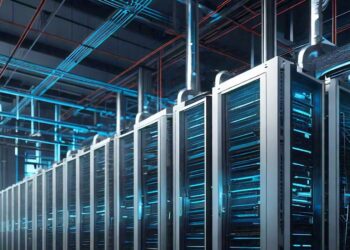Introduction
The rapid evolution of artificial intelligence (AI) has ushered in a new era of technological advancement that is transforming every aspect of our lives. From healthcare to transportation, AI revolution industries and redefining the way we interact with technology. This article explores the journey of AI, its current state, and its potential to reshape our future.
Understanding AI
Artificial intelligence refers to the simulation of human intelligence processes by machines, especially computer systems. These processes include learning (acquiring information and rules for using it), reasoning (using rules to reach approximate or definite conclusions), and self-correction. AI can be categorized into three types: Narrow AI, which is designed for a specific task; General AI, which possesses the ability to understand, learn, and apply knowledge in various domains; and Super AI, an advanced form that surpasses human intelligence.
Historical Background
The concept of AI dates back to ancient history, but significant developments began in the mid-20th century. Early milestones include Alan Turing’s theoretical Turing Machine and the creation of the first AI program by Christopher Strachey in 1951. Over the decades, AI research has seen numerous breakthroughs, such as the development of expert systems in the 1970s, the advent of machine learning in the 1980s, and the rise of deep learning in the 2000s.
Current State of AI
Today’s AI landscape is characterized by groundbreaking technologies like natural language processing (NLP), computer vision, and neural networks. Companies like Google, Microsoft, and OpenAI are leading the charge with innovations that push the boundaries of what AI can achieve. From self-driving cars to voice-activated virtual assistants, the AI revolution is seamlessly integrating into our daily lives.
Applications of AI in Daily Life
AI’s impact is most visible in everyday applications:
- Healthcare: AI algorithms assist in diagnosing diseases, predicting patient outcomes, and personalizing treatment plans.
- Transportation: Autonomous vehicles, traffic management systems, and ride-sharing apps rely on AI to improve safety and efficiency.
- Education: AI-powered educational tools provide personalized learning experiences, helping students learn at their own pace.
- Entertainment: Streaming services use AI to recommend content, while video games employ AI for realistic graphics and interactions.
AI in Business and Industry
Businesses are leveraging AI to enhance productivity and customer experiences:
- Automation and Efficiency: AI-driven automation reduces manual labor, streamlines processes, and increases accuracy.
- Customer Service: Chatbots and virtual assistants provide instant customer support, improving satisfaction.
- Finance: AI algorithms analyze market trends, detect fraud, and manage investments.
- Manufacturing: AI optimizes production lines, predicts maintenance needs, and ensures quality control.
AI and Data
The symbiotic relationship between AI and big data is crucial. Machine learning models thrive on vast amounts of data, enabling them to identify patterns and make predictions. However, ethical considerations around data privacy and security are paramount. Ensuring transparent and fair data usage is essential for building trust in AI systems.
AI in Research and Development
AI is accelerating progress in various fields:
- Scientific Discoveries: AI analyzes complex data sets, leading to breakthroughs in physics, chemistry, and biology.
- Medical Research: AI aids in drug discovery, genetic research, and the development of new medical treatments.
- Climate Science: AI models predict climate patterns, helping to devise strategies for mitigating environmental impacts.
The Ethical Implications of AI
With great power comes great responsibility. AI raises several ethical concerns:
- Job Displacement: Automation may lead to job losses, necessitating a focus on reskilling the workforce.
- Privacy Concerns: AI systems often require extensive data, raising issues around consent and data protection.
- Bias in AI Algorithms: Ensuring AI systems are free from bias is critical to prevent discrimination and ensure fairness.
AI in Governance and Policy
Governments worldwide are recognizing the need for AI regulation. Policies and frameworks are being developed to address ethical concerns, promote innovation, and ensure public safety. International cooperation is essential to establish global standards for AI development and deployment.
AI and the Future of Work
The AI revolution will reshape the job market:
- Job Transformation: While some jobs may be automated, new roles will emerge, focusing on AI oversight, development, and maintenance.
- Skills Required: The future workforce will need skills in AI, data science, and technology integration.
- Lifelong Learning: Continuous learning and adaptation will be crucial for staying relevant in an AI-driven world.
AI in Robotics
AI-powered robots are advancing rapidly:
- Technological Advances: Robots equipped with AI can perform complex tasks, from surgical procedures to space exploration.
- Sector Applications: AI robots are being used in agriculture, logistics, and hospitality, enhancing efficiency and productivity.
- Future Prospects: The integration of AI and robotics promises a future where robots can work alongside humans in various capacities.
Challenges in AI Development
Despite its potential, AI faces several challenges:
- Technical Hurdles: Developing robust and reliable AI systems requires overcoming significant technical barriers.
- Ethical Dilemmas: Balancing innovation with ethical considerations is crucial for responsible AI development.
- Societal Resistance: Public apprehension and resistance to AI adoption must be addressed through education and awareness.
The Road Ahead
The future of AI holds immense promise:
- Advancements: Continued research will lead to more sophisticated AI systems with broader capabilities.
- Economic Impact: AI will drive economic growth by improving efficiency and creating new markets.
- Vision for the Future: An AI-integrated future will enhance human capabilities, fostering innovation and improving quality of life.
What is artificial intelligence? Artificial intelligence is the simulation of human intelligence processes by machines, especially computer systems, including learning, reasoning, and self-correction.
How is AI changing the world? AI is revolutionizing industries, enhancing daily life through applications in healthcare, transportation, education, and entertainment, and driving efficiency in business and industry.
What are the ethical concerns surrounding AI? Ethical concerns include job displacement, privacy issues, and bias in AI revolution algorithms, necessitating responsible development and regulation.
How can businesses benefit from AI? Businesses can benefit from AI through automation, improved customer service, financial analytics, and optimized manufacturing processes.
What does the future hold for AI? The future of AI includes advancements in technology, significant economic impact, and an AI-integrated world enhancing human capabilities and quality of life.







